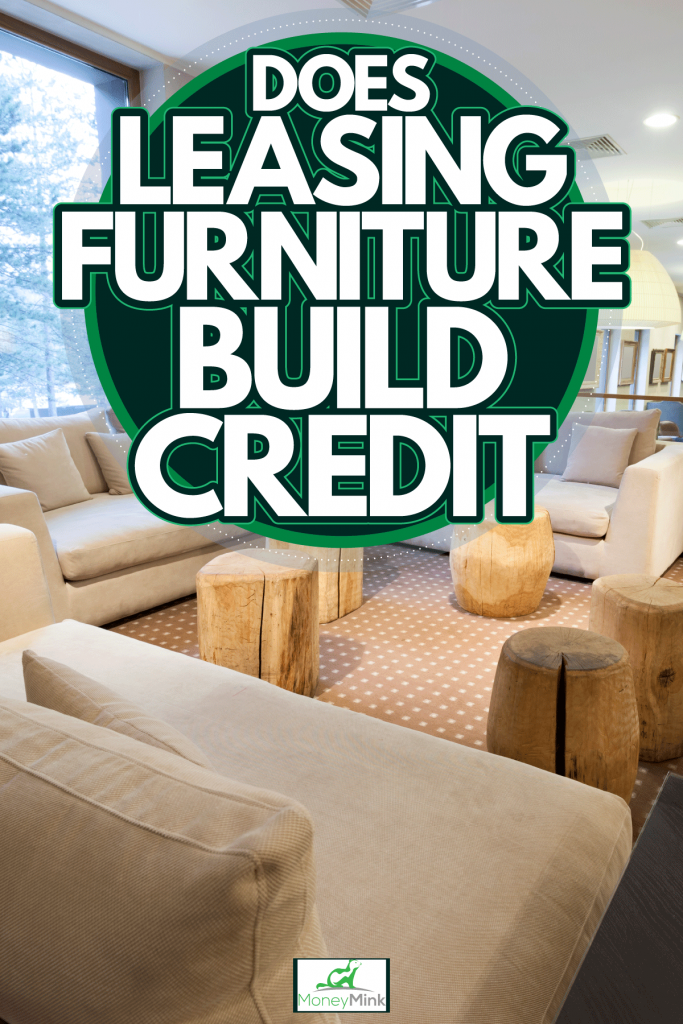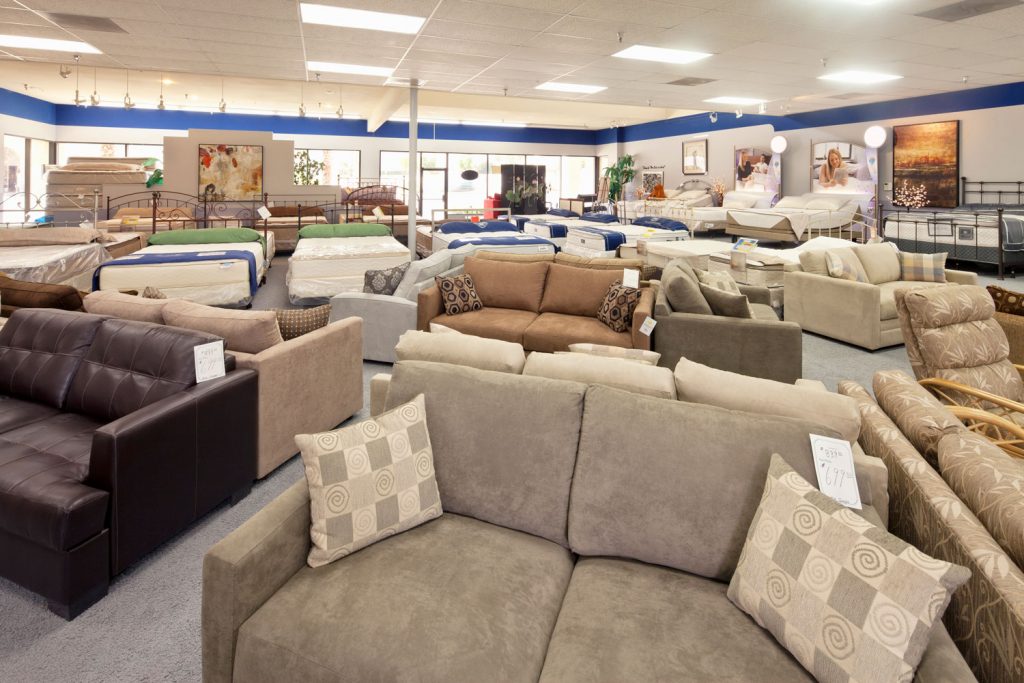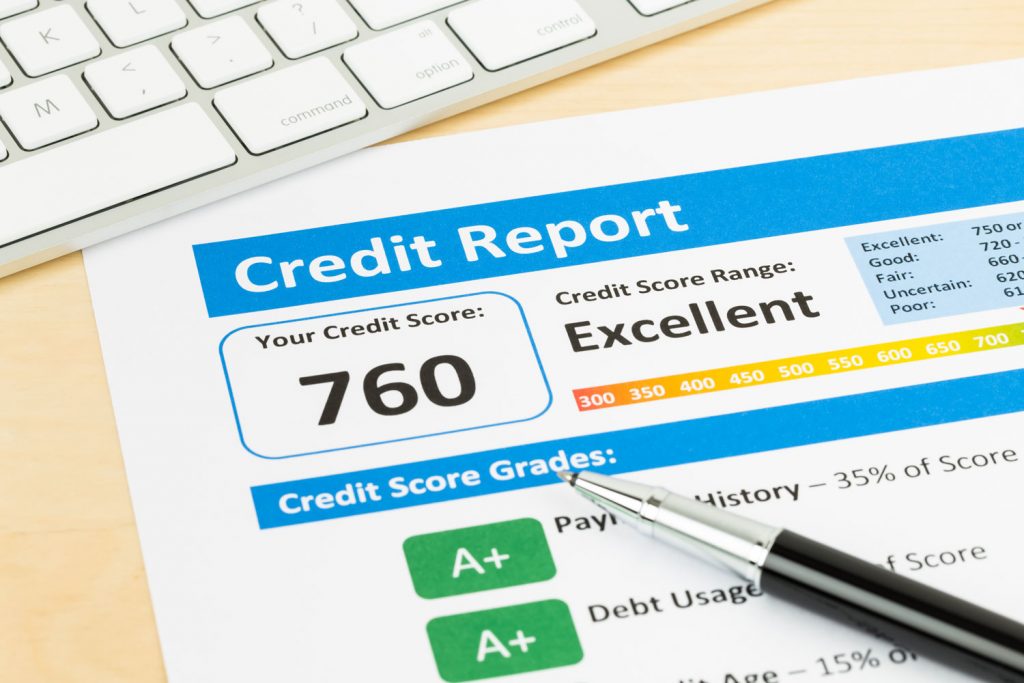Just starting out and wondering how you can afford to furnish your apartment? You've already decided the best choice is to break it up over monthly payments. But maybe you have bad [or no] credit. So it's obvious to wonder - does leasing furniture build credit? We've checked with some furniture finance companies for all the details!
Leasing furniture can build credit, shown as an installment loan on your credit report. However, many furniture companies do not report leases to credit bureaus. If they're unreported, they won't show up on your credit report - or build any credit.
Keep reading, and we'll explain why leasing furniture could build credit and why it usually doesn't. We'll go over some other options for using credit to purchase furniture. Finally, we'll answer the age-old question - is leasing furniture a smart idea?

Does Leasing Furniture Build Credit?
Leasing furniture can help build credit - but only if the financing company reports the loan to a credit bureau. Some stores, such as Aaron's, do not report "rent-to-own" arrangements. Rent-A-Center also does not report their leases at the time of this writing.
If you're interested in using a furniture lease to build credit, you'll have to check with the company. Ask if the loan will be reported to any of the three credit bureaus.
An unreported loan won't help build your credit. Helpful hint: any company that doesn't run your credit report as part of a lease arrangement typically doesn't report on your credit either.

Is Financing Furniture A Good Way To Build Credit?
Financing furniture is one way to build credit. That is, as long as the finance company reports to the credit bureaus. Double-check with the company if you're only taking the loan to build credit.
But is it a good way to build credit? While that depends on the details of the offer, typically not. Financing furniture has three major obstacles.

Bad Debt To Credit Ratio
The loan is usually for the amount you're borrowing. This means you have a high debt to credit ratio, a ding on a credit report. This is also called credit utilization.
If you can, it's better to put $2000 worth of furniture on a $10000 credit card - using 20% of your available credit. Owing $2000 on a $2000 loan uses 100% of your available credit. This is never ideal and doesn't look great for your credit.
Keep in mind that leases are installment loans, included with credit cards to determine credit utilization. You'll have to do the math yourself to decide which scenario leads to higher credit utilization.
Then, you'll know if it's better to take a new installment loan or add the purchase to existing credit cards. Our advice above is general. It assumes you are opening one line of credit and are choosing between a credit card or an installment loan.
Credit Inquiry
Every time you apply for credit, the credit company pulls your credit report. Having a lot of credit inquiries is another bad mark on a credit report.
If you're trying to establish credit history, there's no way to avoid some credit inquiries. You have to get credit to have credit.
It's also worth pointing out that this is a relatively minor problem. One or two inquiries aren't going to tank your credit. And they don't stay on your report forever - around 1 or 2 years, according to Equifax.
But the goal is to spread out credit inquiries until they come off your report in a few years. It's often better to save them for significant investments like buying a house or car. Or for more flexible credit like a credit card.
Loans for financing furniture are relatively limited in their use. If you start financing purchases through a bunch of individual lines of credit, it can be a real blow to your credit. It's not that you can't do it- but do it cautiously.

Credit Length
Another factor in your credit score is the duration or length of your credit accounts. The time you've had each account is added up and divided by the number of accounts.
So if you have two lines of credit, each three years old, adding a brand new account can have a big impact. Your three-year credit length now goes to a mere 1 year! On the other hand, if you have lots of well-aged accounts, it shouldn't make a big difference.
And like credit inquiries, this isn't something you can avoid forever. If you don't have a long credit history, you're just going to have to deal with opening a few accounts and waiting for your history to grow. It's a bit self-fulfilling - if lack of credit keeps you from growing credit, then you're never going to grow credit.
Big changes sometimes have a negative initial impact but are worth it in the end. You'll have to evaluate your current credit factors to decide if this is the best option for you.
And remember that timing is essential - work on growing your credit when you can wait for it to rebound. Not a few months before you try to buy your first house!
How Does A Lease Show Up On A Credit Report?
Leases are reported as installment loans. The sale price is reported as the amount owed. Many reports also show the amount left to pay and the number of months paid/left to pay.
Note that furniture loans often don't show up on a credit report at all. Check with the company offering the lease for their specific details.
Can I Get A Loan For Furniture?
The most common loans for purchasing furniture are:
In-store loans
These essentially issue credit in the purchase amount. These often come with appealing low rates and offers - but be sure you can pay it off before these special terms expire!
Home improvement loans
You may be able to borrow against your home's equity. In these loans, the bank usually recognizes you as a low risk, thanks to that home equity you've already invested in. These offers typically have the lowest rates and are the most affordable.
Rent-to-own or leasing
In this method, you pay monthly installments until the furniture is paid off. A big advantage of this method is that you can return the furniture later. Since you're "renting" from month to month, you can terminate this arrangement if an unforeseen expense pops up.
Credit cards
Which may or may not work for you. Using credit cards is convenient, as you don't have to run a new line of credit. However, it does use up a big chunk of available credit. Plus, rates are often not competitive, but that varies with credit history.

Is It Smart To Lease Furniture?
There are a few times when it's wise to lease furniture, even if it doesn't boost your credit. Examples are:
It's For A Short Time
Spending a few months overseas? Don't want to haul furniture back from a college apartment? Don't have anywhere to store it after the semester is over anyway? Leasing is an easy way to furnish a short-term living situation.
Not Ready To Commit/Testing Out Your Options
Maybe you're not ready to drop a thousand dollars on your dream couch. Maybe you aren't quite sure what your furniture style is.
If you don't want to lock into a commitment right now, then don't! Leasing gives you a chance to try a few different things before you settle on your perfect match.
Staging A Home For Sale
Making a house look like a home is one way to speed up the sale. But if you've already moved your goods to your new home, what can you do?
One answer is to lease furniture. It gives the "lived-in" appearance you want - and you can send it back to the store after.

You Really Need It Now
If you need it now and just don't have the money, leasing is a way to get the furniture you couldn't afford otherwise. Just make sure to stay within a careful budget. It's easy to go overboard when you look at a monthly cost rather than the total.
And be aware that you're going to pay extra for the convenience. Yes, you get to have it now and pay for it later - but you'll pay a lot more in the long run.
It's more financially prudent to go without. Save the cash til you can buy outright. But, sometimes that just isn't feasible.
In Conclusion
Leasing furniture can help build credit, but only if the company reports it to a credit bureau. Most well-known furniture companies do not. Even when reported, furniture leases often have a negative effect on credit. They show a high credit utilization rate, reduce your average account length, and put a credit inquiry on your report.
As a general rule, they're mostly helpful for someone building initial credit who cannot qualify for a credit card or other, better, forms of credit.
If you enjoyed this, try reading:



